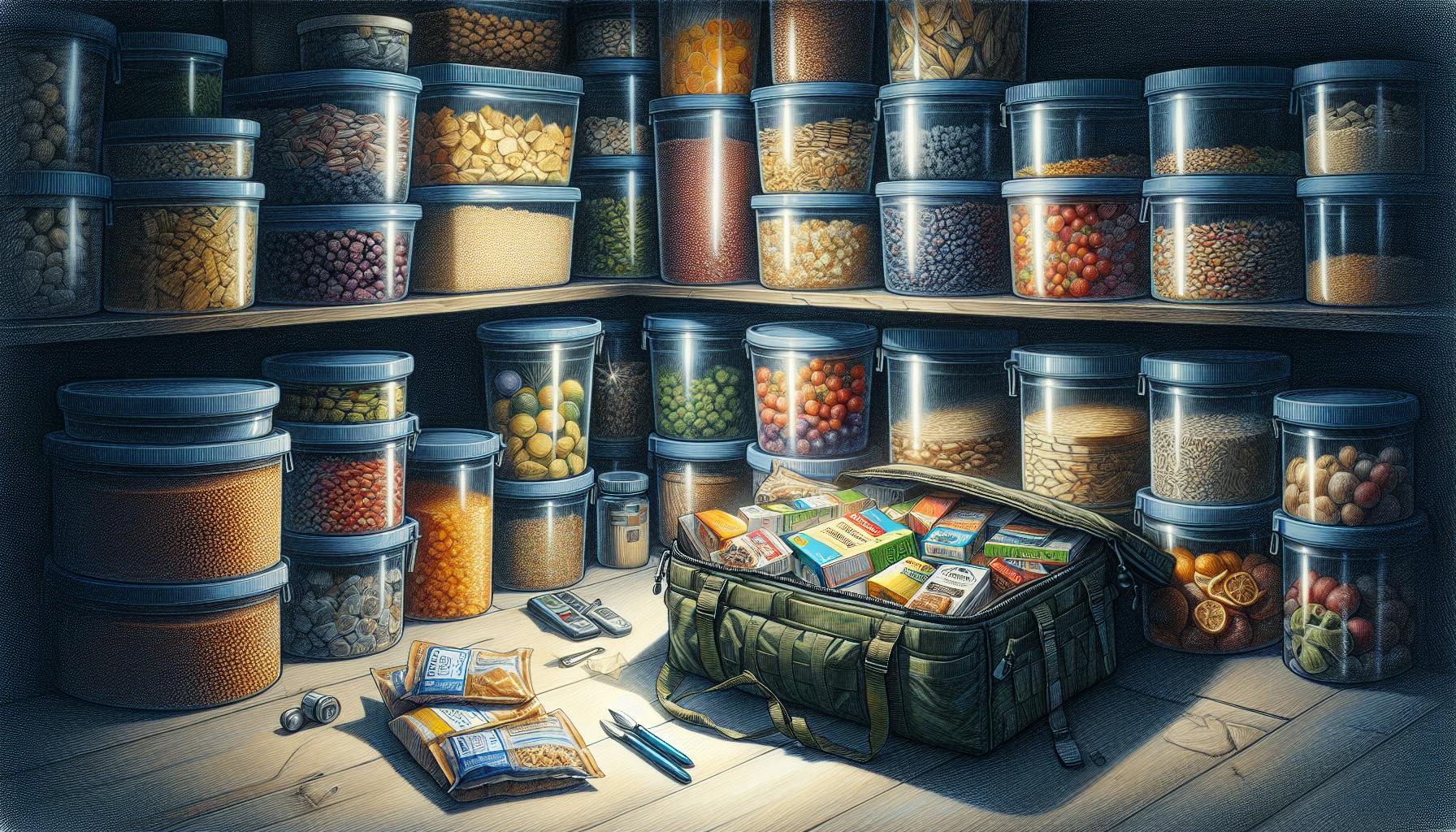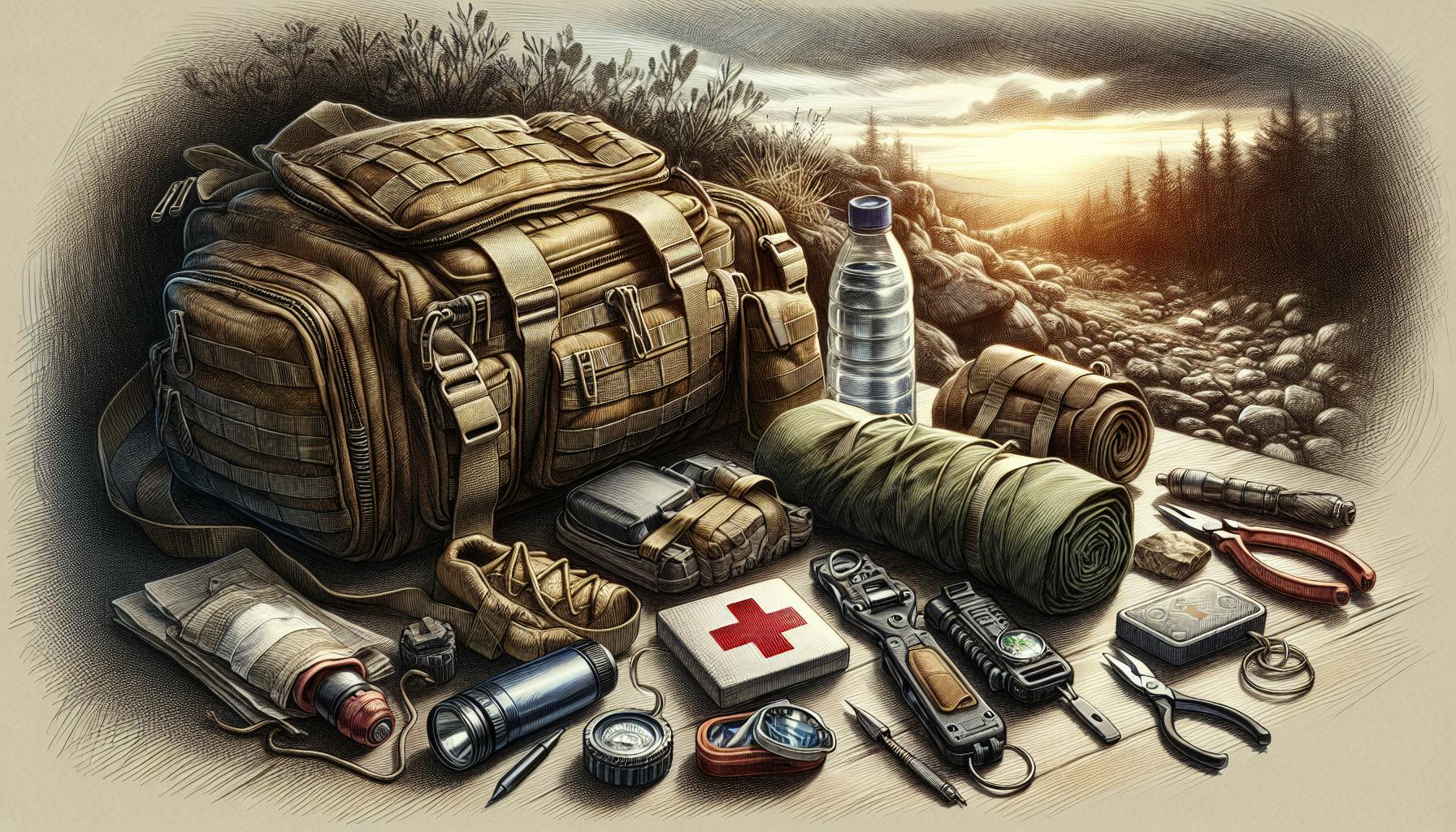Introduction
Selco is a man who has seen society collapse first-hand during the Balkan war in the 1990s. As a survivor of the year-long siege of Sarajevo, Selco gained invaluable experience and insight into how to stay alive when the SHTF (shit hits the fan). His advice comes directly from living through a true SHTF scenario when civilization broke down, there was no power or running water, and death was a daily occurrence.
Selco emphasizes practical survival strategies focused on the most basic human needs - water, food, hygiene, shelter, security. His recommendations go beyond just stockpiling supplies to developing the proper mindset and plans to endure in a post-SHTF world. Key takeaways include prioritizing needs, maintaining situational awareness, psychological preparation, detailed emergency planning, securing essential resources, acquiring fundamental gear/supplies, and finding a trusted community.
Preppers should study Selco's lessons closely. While most preppers today have only theoretical knowledge, Selco lived a real-life SHTF collapse and his first-hand experience makes his advice extremely valuable. By learning from Selco, preppers can get a realistic preview of what life is truly like when the civilized world ends and how best to survive it.
Prioritizing Needs
Selco stresses that after SHTF, the top priorities should be securing the basics for sustaining human life - water, food, hygiene, shelter and warmth.
-
Make detailed lists of the exact supplies and quantities needed to survive for at least 30 days. Focus on basics like water purification tools, canned/non-perishable foods, hygiene items, fuel, and medical supplies. For example, store at least 1 gallon of water per person per day in sealed 5-gallon containers, rotating every 6 months.
-
Consider stockpiling barter items that others will need like medicine, batteries, candles, or liquor. These can be traded for essentials when supply chains break down. Popular barter items include liquor, cigarettes, coffee, over-the-counter painkillers, and ammunition.
-
Don't overlook hygiene which is crucial to avoid illness when medical care is scarce. Stock antibacterial soap, bleach, disinfectants, and antibiotics like amoxicillin.
-
Ensure you have contingency plans for gathering water like rain barrels, as well as filtering and boiling it to make it potable. Buy water filtration systems like Lifestraws and purification chemicals like bleach.
Security and Situational Awareness
Selco warns that a SHTF collapse brings out the worst in desperate people willing to harm others to survive. Maintaining security and situational awareness is critical.
-
Be very cautious and suspicious of others. Avoid conflict if possible, don't attract attention. But be armed and ready to defend yourself and your family. Stock firearms and ammunition suitable for defense, as well as non-lethal options like pepper spray.
-
Stay alert and attuned to your surroundings at all times. Scope out alternate escape routes and know where potential threats may materialize. Designate lookouts.
-
Have a pre-planned bug-out location or fallback point stocked with supplies in case you need to evacuate quickly. Ensure proper bug-out bags are prepared.
-
Only associate with those you can trust. There will be many who seem friendly at first but are secretly willing to kill for your supplies. Observe those interested in joining your group before fully including them.
Mental Preparation
Selco stresses the importance of proper mental preparation in addition to physical/supply preps when SHTF.
-
Accept that all modern comforts and civil order will be gone. Mentally condition yourself to survive without electricity, healthcare, emergency services, etc.
-
Don't underestimate the severe psychological impact - the stress, grief, despair. But find ways to cope and stay mentally clearheaded. Lean on your community.
-
Maintain positivity. Keep your mind focused positively on doing what it takes to survive and protect your family or group.
-
Rely on inner skills, experience and instincts - not just gear and preps. Flexible thinking and innovation can often save you.
-
Be ready to make difficult morally ambiguous choices for the sake of you and your group’s survival. Prepare to go outside your comfort zone.
Developing a Realistic Survival Plan
Selco insists that in addition to supplies, preppers need a realistic and detailed plan for different SHTF scenarios.
-
Involve your family or survival group in planning. Ensure everyone knows the plan intimately and their roles and responsibilities. Hold regular drills.
-
Make lists of every supply you have and need. Set priorities for getting anything missing. Continually update your lists as supplies change.
-
Have contingency plans and alternate options at the ready. Be mentally nimble to adapt as the situation changes.
-
Assign group members specific tasks like gathering intel, security, finding resources, medical care. Play to each person's strengths.
-
Identify key threat scenarios likely in your area - economic collapse, pandemic, natural disaster, nuclear event, etc. Tailor your plans.
Bugging In vs Bugging Out
Selco notes that the decision to shelter in place at home (“bug in”) or evacuate (“bug out”) depends greatly on the situation.
-
Bugging in requires fortifying your home, stocking up on supplies, and settling in. But provides familiarity and fewer unknowns.
-
Bugging out requires being ready to leave immediately with bug out bags, a planned destination and route, and necessary travel gear and supplies.
-
If bugging out, scout your destination and route ahead of time. Don't try to travel blindly.
-
Consider the pros and cons of each option carefully based on the type of disaster, your location, community, supplies, etc. Weigh your options.
-
Be prepared to do either at a moment's notice. An ill-planned bug out into uncertainty can be just as dangerous as staying put.
Acquiring Essential Resources
When SHTF, ordinary supply chains will be cut off, so being able to acquire essential resources will be critical according to Selco.
-
Take stock of likely local sources - rivers, lakes or rainwater for water; forests for hunting; farmland for scavenging fruit and vegetables, etc.
-
Have water filtration/purification systems ready. Be able to make basic filters from sand, charcoal and cloth.
-
Be ready to scavenge empty houses, stores, and cars for anything useful like food, fuel or medical supplies.
-
Save and portion out food supplies carefully. Be prepared to hunt, fish, trap, and forage. Learn skills like trapping, fishing, and identifying edible plants.
-
Consider setting up greenhouses or gardening areas for growing fresh produce. Stock seeds and gardening tools.
Medical Emergencies
With no functioning hospitals, handling medical issues yourself will be vital. Selco suggests preppers:
-
Get training and reference books on suturing wounds, setting bones, delivering babies, recognizing infections and other critical medical skills.
-
Stock up on antibiotics like amoxicillin, painkillers, surgical tools, sutures, sterile bandages, etc. Research natural antibiotics as well.
-
Make contingency plans for medical scenarios - illness, injury, childbirth, infections, etc. Designate personnel roles.
-
Recruit or partner with doctors, nurses, EMTs who can provide expert care when needed. Offer them protection and supplies.
-
Make staying healthy a priority through proper hygiene, nutrition, and sanitation. Prevention over cure. Get in shape and quit smoking.
Essential Gear & Supplies
Selco recommends having robust stocks of critical supplies and gear ready, including:
-
Customized bug-out bags for each family member with food, water, first aid, tools, etc. Bags should be ready to grab and go.
-
At least 30-day supply of water and shelf-stable food per person. Calculate exactly how much you'll consume. MREs and freeze-dried meals are good options.
-
Hygiene items, OTC meds, first aid kits, off-grid power options, weapons, ammunition. Rotate stock as items expire.
-
Barter items like liquor, cigarettes, coffee, medicine, batteries, fuel. Useful for trade.
-
Communications gear like HAM radios, shortwave radios, and CB radios to gather intel and stay connected.
Water Storage and Purification
Storing and purifying water will be vital when taps run dry. Selco suggests:
-
Storing water in sealed BPA-free containers and replacing every 6 months. Have at least 1 gallon per person per day. Use water storage tanks if possible.
-
Invest in water filtration systems like Lifestraws, Berkeys and chemicals like bleach or chlorine powder. Also buy water purification tablets.
-
Create DIY filters from charcoal, sand, gravel, and cloth. Use rain barrels to collect water.
-
Boil water vigorously if unsure about the source. This will kill most pathogens.
Long Shelf-Life Foods
Stockpiling calorie-dense foods with long shelf lives can make the difference between life and death. Selco recommends:
-
Rice, beans, canned meat/fish, honey, salt, canned fruits and vegetables. Buy in bulk for cost savings.
-
High-calorie foods like peanut butter, nuts, oils and protein bars.
-
Comfort foods like coffee, tea, powdered milk, spices, hard candies and chocolate.
-
MREs, canned stews and soups, freeze-dried camping meals.
-
Seeds to start sprouts and microgreens. Beans and grains to sprout into fresh greens.
-
Rotate your stock and eat older items first before they expire.
Medicines and First Aid
Medical issues become life-threatening without professional care. Selco suggests preppers:
-
Stock over the counter medications - painkillers, antibiotics, antihistamines, antidiarrheals, etc. Know proper dosages.
-
Acquire prescription antibiotics like amoxicillin and penicillin if possible. Have at minimum a 30-day supply.
-
Assemble first aid kits - bandages, gloves, trauma items, sutures, scalpels, clamps, gauze. Buy pre-made kits.
-
Get manuals and training for delivering critical medical care and procedures when needed. Take first aid classes now.
-
Research natural/herbal medicines as alternatives when pharmaceuticals aren't available. Stock these as well.
Finding the Right Group & Community
Selco believes lone wolf preppers will have the hardest time surviving SHTF situations and that being part of a trusted group or community is essential for overcoming challenges through cooperation and combined skills and resources.
-
Connect with like-minded neighbors and friends with useful skills like farming, mechanics, medical, etc. who can bring real value to the group. Watch out for moochers and freeloaders.
-
Find other experienced preppers willing to teach and lead a group through a SHTF scenario. Learn from their knowledge and follow their guidance.
-
Only associate with those you can truly trust and who share your survival philosophies and mindset. Avoid clashes through clear rules.
-
Ensure each person contributes based on their abilities. Share workloads fairly so no one is too burdened. Lazy members should be cut loose.
-
Agree on rules, property rights, security protocols, engagement policies to prevent internal conflicts. Write them down formally.
Conclusion
Selco's direct experience of an authentic SHTF collapse makes his survival advice incredibly useful for today's preppers. By studying Selco's tried and tested survival strategies focused on securing basic human needs, maintaining security, psychological preparedness, detailed emergency planning, essential gear/supplies acquisition, and community building, modern preppers can adapt and overcome in the harshest of SHTF situations just as Selco did during his year-long struggle to survive in war-torn Bosnia. Selco provides a rare and highly valuable model for preppers seeking to learn true SHTF survival.


